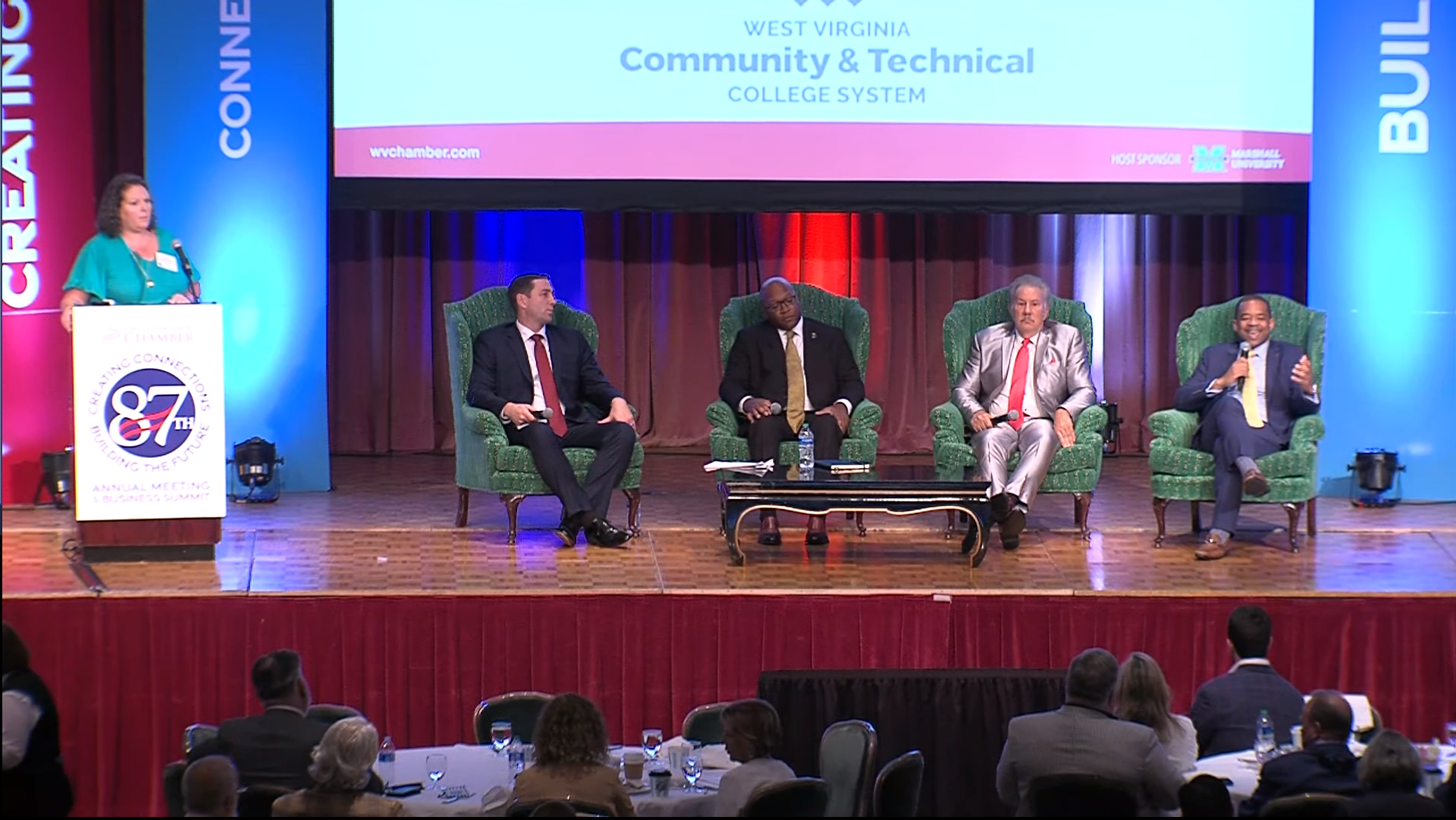The role of education in the state’s business future was a key talking point at this week’s West Virginia Chamber of Commerce’s Business Summit. Marshall University President Brad Smith and West Virginia University President Gordon Gee opened the summit by announcing a program to try and keep college graduates in the state.
Immediately after the announcement, Smith discussed how higher education is fueling West Virginia’s economy and on Thursday Gee was joined by Marty Roth, president of the University of Charleston, to discuss investments in the state’s next generation.
On Friday, presidents from the state’s smaller schools such as Glenville State University, WVU Tech and Mountwest Community & Technical College came together to discuss how higher education is driving change in West Virginia.
Ericke Cage, president of West Virginia State University, addressed the question of whether higher education still matters moving forward.
“There’s only one way that a self-described small town, country boy from southern Virginia is able to sit on the stage today and be the president of one of West Virginia’s great institutions, and that is through the transformative power of education,” Cage said. “Make no mistake, ladies and gentlemen, higher education still remains the greatest platform for social and economic mobility in our country.”
Sarah Armstrong Tucker, chancellor of the Higher Education Policy Commission called on the assembled business community to stand with higher education and its role in the state’s future job market.
“When I go out and I talk to students in K-12, not once do they tell me I’m choosing what I want to do for my future because of the football team,” Tucker said. “They tell me that they want a job. They want a job that will pay them enough money that they will be better off than their families were. They want security. They want to know that they will be able to feed their children. And that’s where we need you.”
